As per the research, more than 75% of kids are sleep deprived across the globe. Unfortunately, poor sleep quality has adverse effects on a child’s mood and overall health. Sleep deprivation in kids has also been linked to health issues such as childhood obesity and ADHD.
Many parents are concerned for their kids and are looking for ways to improve their child's sleep. Some are even thinking about using nutritional supplements like Melatonin. Though this supplement is safe for adults, parents might be concerned about their youngsters taking melatonin.
In this blog, we will be discussing more about Melatonin, its dosage and precautions that parents should take before giving Melatonin to their kids.
WHAT IS MELATONIN?
Melatonin is a hormone produced by the brain with the help of the pineal gland, located deep inside the brain. Often known as a sleep hormone, Melatonin helps with the proper regulation of the body's sleep-wake cycle, also known as circadian rhythm. Research shows that melatonin also aids to treat sleep latency, combating jet lag, and helping the body adopt new time zones.
As people have started facing sleeping issues, especially children who are unable to sleep on time due to exposure to blue lights emitted by phones and laptops, the trend of melatonin consumption has also started moving on an upward trajectory.
In Australia also, melatonin is available at many drug and health food stores in the form of gummies and tablets.
DOES MELATONIN HELP KIDS FALL ASLEEP?

There are many parents who often ponder whether melatonin supplements can aid their child fall asleep.
As per the research, Melatonin pills could be a good temporary solution for your child if they have trouble sleeping through the night or getting enough sleep. Also various studies have shown that melatonin helps children fall asleep quickly while also improving their sleep quality.
The increase in melatonin levels in the evening signals to your body that it is time to go to bed. On the other hand, a few hours before it's time to wake up, melatonin levels start to decline. This is one of the reasons sleep experts advise against light exposure while going to bed.
Melatonin also aids with speeding up the time it takes for children to fall asleep, including those children who are suffering from insomnia, ADHD, autism, epilepsy and other neurodevelopmental disorders. This is supported by solid scientific evidence.
Melatonin can be a useful short-term treatment for sleep issues, but in some situations, children with neurodevelopmental abnormalities may benefit from longer-term use of melatonin supplementation.
IS MELATONIN SAFE FOR KIDS?
Various researches have shown that children can safely take melatonin for a short period of time. Even some doctors advise melatonin for kids who have trouble falling asleep. It has also been used to treat children with ADHD and autism spectrum disorder, and some evidence suggests that it benefits children with specific sleep difficulties.
The most obvious advantage is that, when taken properly, melatonin can promote quality sleep; however, melatonin supplementation has dozens of other benefits apart from improving sleep quality.
RIGHT DOSAGE AND FREQUENCY FOR MELATONIN

As per the research, parents can give 0.5 to 1 milligrams of melatonin to their kids. For children with ADHD or sleeplessness, the melatonin dosage can be increased, but it shouldn't go over 3 to 6 milligrammes every night. To promote sound sleep patterns, melatonin should be given 30 to 90 minutes before bedtime.
However, before giving your child melatonin, be sure to discuss the recommended dosage with your doctor.
CONCLUSION
A night of good sleep is crucial for a healthy life as poor sleep may cause negative impact on your child's physical health, academic achievement, and psychological well-being. Additional behavioral or mental health problems, such as impatience, melancholy, anxiety, or hyperactivity, might result from sleep deprivation.
As per various researches conducted by medical experts, Melatonin appears to be safe, has few to no adverse effects, and may promote quicker and deeper sleep in children.
However, it is always advised to use Melatonin only under the direction of a healthcare professional.
